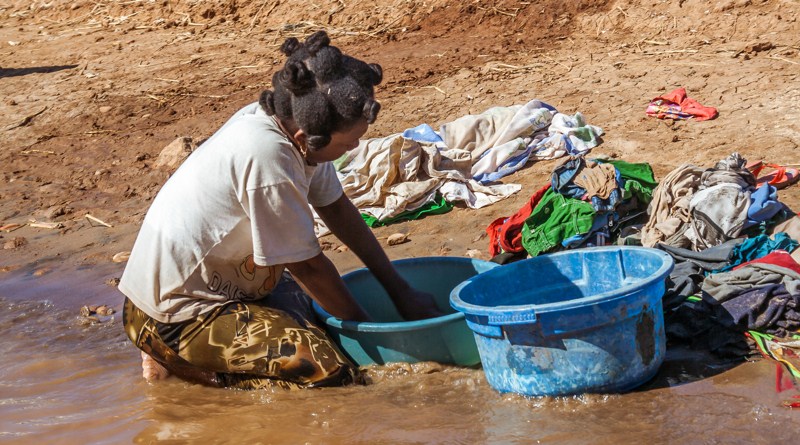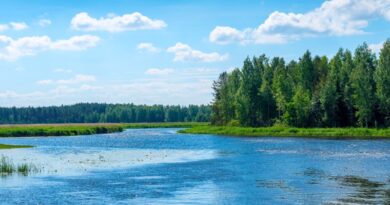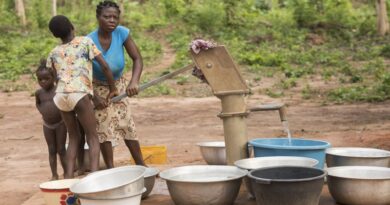Climate change resilience, access to water need more ‘green economy’ funds

The world’s top 450 public development banks have jointly pledged to refocus their strategies, investment patterns, activities and operating modalities to contribute to the achievement of the SDGs and the objectives of the Paris Agreement, while responding to the Covid-19 crisis.
While asking for enhanced ‘green economy’ funding for climate change resilience and access to water, the PDBs said the Covid-19 pandemic and its subsequent socio-economic crisis is generating profound and enduring impacts for people and the planet.
The PDBs have reaffirmed the need to respond to the impacts of Covid-19 and work together in order to deliver the support in each and every country, across the globe. “The crisis reveals and amplifies our vulnerabilities and inequalities, reconsidering our development models. It leads us to rethink and factor in environmental and social issues in our production and consumption modes in order to build more just and resilient societies”, a joint declaration by the PDBs has noted.
The 450 PDBs are distributed across every region of the world, operating at local, national, regional, international or multilateral levels. They range from generalist or specialized, supporting small and medium enterprises, agriculture and food systems, housing, trade, as well as development finance institutions focused on the private sector.
The collaborative move of the PDBs, largely owned by governments, comes in the wake of climate finance for developing countries falling short of the requirement. Financing for water, which faces impacts of extreme climate change through droughts, floods and other threats to water supplies, in particular has been quite low.
In 2009, at the UN climate talks, member countries pledged a total of $100 billion in climate finance and developing countries agreed to curtail greenhouse gas emissions in order to access this assistance. As per OECD calculations, by 2018, financing had reached $79 billion, falling far short of the commitment.
According to a recent report by WaterAid and Overseas Development Institute (ODI), only about one per cent of this funding goes to protecting and providing water for vulnerable communities. The report details the climate finance requirements and suggests how and where donors and national governments should re-priortise climate investment.
This assessment reiterates that two billion people across the world do not have access to safe and reliable water supply. These populations are more vulnerable to the impacts of increasingly severe and frequent droughts, floods and extreme weather events. Investment is needed to build resilience.
The report found that only 10 per cent of the climate-related finance allocated for water programmes goes to projects that provide water, toilets and good hygiene services. In some countries for those facing the climate-caused floods, droughts and disease, the allocation is as low as $1 per person per year.
“This report shows us that the world is not responding to the climate crisis by prioritising the most vulnerable. Instead, the poorest communities, those on the front lines of climate change who are already feeling the impacts, are being left to pick up the bill themselves. We must meet this injustice with urgent and significant action on a global scale, and provide everyone, everywhere with the tools they need to combat the growing threat of climate change”, said WaterAid’s Senior Policy Analyst for Climate Change Jonathan Farr.
The joint declaration by the PDBs states that on climate change, following the adoption of the Paris Agreement by governments, they commit to align their activities with the objectives of the Paris Agreement. “To this end, we will strive to develop, operationalize and scale-up strategies and methodologies of alignment in the perspective of COP26, in support of the definition and implementation of Nationally Determined Contributions (NDCs) and long-term strategies to reach zero net emissions as early as possible in the second half of this century”.
“We will mainstream resilience and adaptation in our strategies and operations and enhance action to fund the definition and implementation of national adaptation plans. We will help redirect private financial flows in support of low-carbon and climate-resilient sustainable development. Furthermore, we stand ready to support governments to accelerate climate action and ambition to move away from high-carbon, resource intensive and polluting activities, and avoid maladaptation”, the declaration added.
“We are calling on public development banks to support a package of essential public services, including ensuring access to water, sanitation and hygiene services. This will enable developing countries to be so much more resilient to all sorts of crises, both now and in the future”, said WaterAid’s Farr.
“We must support the three billion people who are facing down a pandemic without access to the water and soap they need to wash their hands, and the two billion who don’t have access to safely managed drinking water and are under threat from the droughts, floods and extreme weather caused by climate change.”



